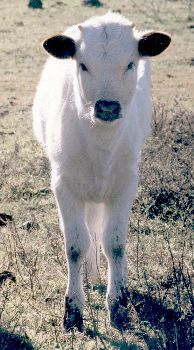by Larry
December, 2015Christmas Trees Up Means Global Warming Down, Except...I then compared that with the amount of global warming effects I am contributing in the form of extra carbon dioxide I am putting into the atmosphere. It turns out that, by simply driving my car on a freeway I am putting that much carbon dioxide back into the atmosphere every 90 minutes, and this is not counting what was released through the warming of our house, the making of our clothes, the production of our food, and so on. In short, offsetting the carbon I add to our atmosphere is a nice idea, yet to do it with trees alone would entail planting so many I'd not have time for anything else, and, since I lack the space for all those new arbors in our yard, I'd put way too much new carbon dioxide into the atmosphere commuting to and from whatever fields I could find, buy, or lease, and use for increasing the number of Douglas Fir or juniper forests. All in all, it does not compute. And our yard is as full as can be with trees as it is.
We do fairly well with our autos, for they are fuel efficient. What about water usage? Here we are doing pretty well compared with our neighbors, though still of course much worse than in Third World countries. Our average monthly water use is about 3000 gallons, roughly 100 a day or 50 each for the two of us. That works out to about half the average amount of extra carbon added due to the supply, transport, and treatment of water that households use. Similarly with our electricity and natural gas usage. Though not as efficient as in use of water, our contribution is about 60% what the average person does to global warming from these types of energy usage. No doubt this is partly due to our not having had the typical number of children: 1.87 per couple in this country. And Peri's limited talent for computer games keeps her electrical usage from being too great a contribution to our total. I could be wrong but, as is true for Valerie and myself, doubt most folks are willing and ready to make substantial changes in their vehicles, utilities use, or amount of trees planting to have a significant net reduction effect on their global warming causing gas emissions. Is there any area of our lifestyle available, then, for us to make a significant donation toward the anti-global warming cause? Well yes, for we have not mentioned food type (as opposed to energy) calories. Roughly a third of our country's greenhouse gas emissions result from the food that is produced, transported, and stored for us, then eaten. The average individual in the U.S. emits about 2.5 metric tons of carbon dioxide annually just from his or her diet. Those who are heavily into beef consumption contribute roughly a third more than that. By contrast, eliminating beef from one's diet reduces the average person's food intake carbon footprint by about a fourth. A vegetarian diet, on average, is even better, contributing only about half as much global warming causing pollution as the big beef eater's diet. The bottom line, then, is that while it may be prettier to plant a Christmas tree, the best thing most of us can do to reduce global warming is to simply not have a cow! |
 So then, still wanting to be generous to our pearly world, I looked into other ways I might reduce my carbon footprint in lieu of offsetting it by planting more Christmas trees. Suppose, for instance, I use an artificial tree for our annual decorating instead of a natural one. This is a laudable idea, maybe, but as it happens so much extra carbon dioxide is put into the atmosphere in the process of making the fake tree that I would need to keep using it instead of a real one for at least 20 years to have a positive difference. (OK, actually, Val and I have already managed that with a little artificial one we bought 30 years ago, so from here on it is all to the good!)
So then, still wanting to be generous to our pearly world, I looked into other ways I might reduce my carbon footprint in lieu of offsetting it by planting more Christmas trees. Suppose, for instance, I use an artificial tree for our annual decorating instead of a natural one. This is a laudable idea, maybe, but as it happens so much extra carbon dioxide is put into the atmosphere in the process of making the fake tree that I would need to keep using it instead of a real one for at least 20 years to have a positive difference. (OK, actually, Val and I have already managed that with a little artificial one we bought 30 years ago, so from here on it is all to the good!)